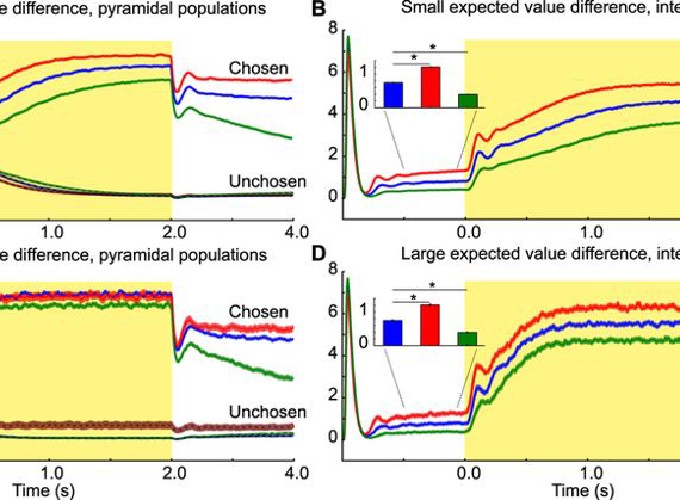Selective alteration of human value decisions with medial frontal tDCS is predicted by changes in attractor dynamics
Abstract
During value-based decision making, ventromedial prefrontal cortex (vmPFC) is thought to support choices by tracking the expected gain from different outcomes via a competition-based process. Using a computational neurostimulation approach we asked how perturbing this region might alter this competition and resulting value decisions. We simulated a perturbation of neural dynamics in a biophysically informed model of decision-making through in silico depolarization at the level of neuronal ensembles. Simulated depolarization increased baseline firing rates of pyramidal neurons, which altered their susceptibility to background noise, and thereby increased choice stochasticity. These behavioural predictions were compared to choice behaviour in healthy participants performing similar value decisions during transcranial direct current stimulation (tDCS), a non-invasive brain stimulation technique. We placed the soma depolarizing electrode over medial frontal PFC. In line with model predictions, this intervention resulted in more random choices. By contrast, no such effect was observed when placing the depolarizing electrode over lateral PFC. Using a causal manipulation of ventromedial and lateral prefrontal function, these results provide support for competition-based choice dynamics in human vmPFC, and introduce computational neurostimulation as a mechanistic assay for neurostimulation studies of cognition.
